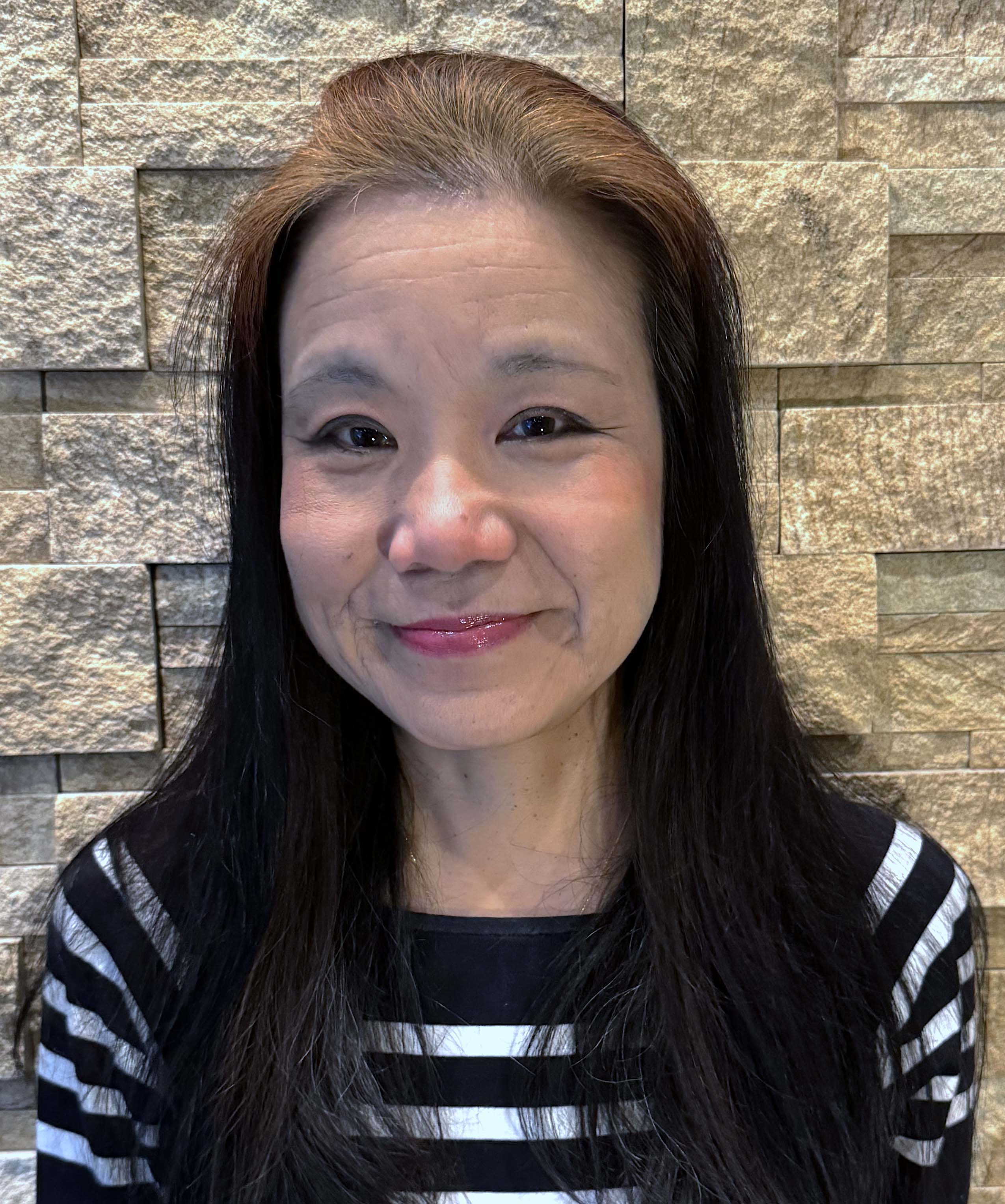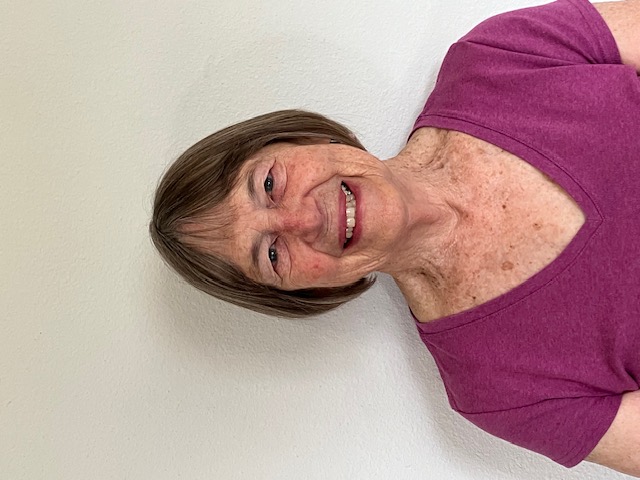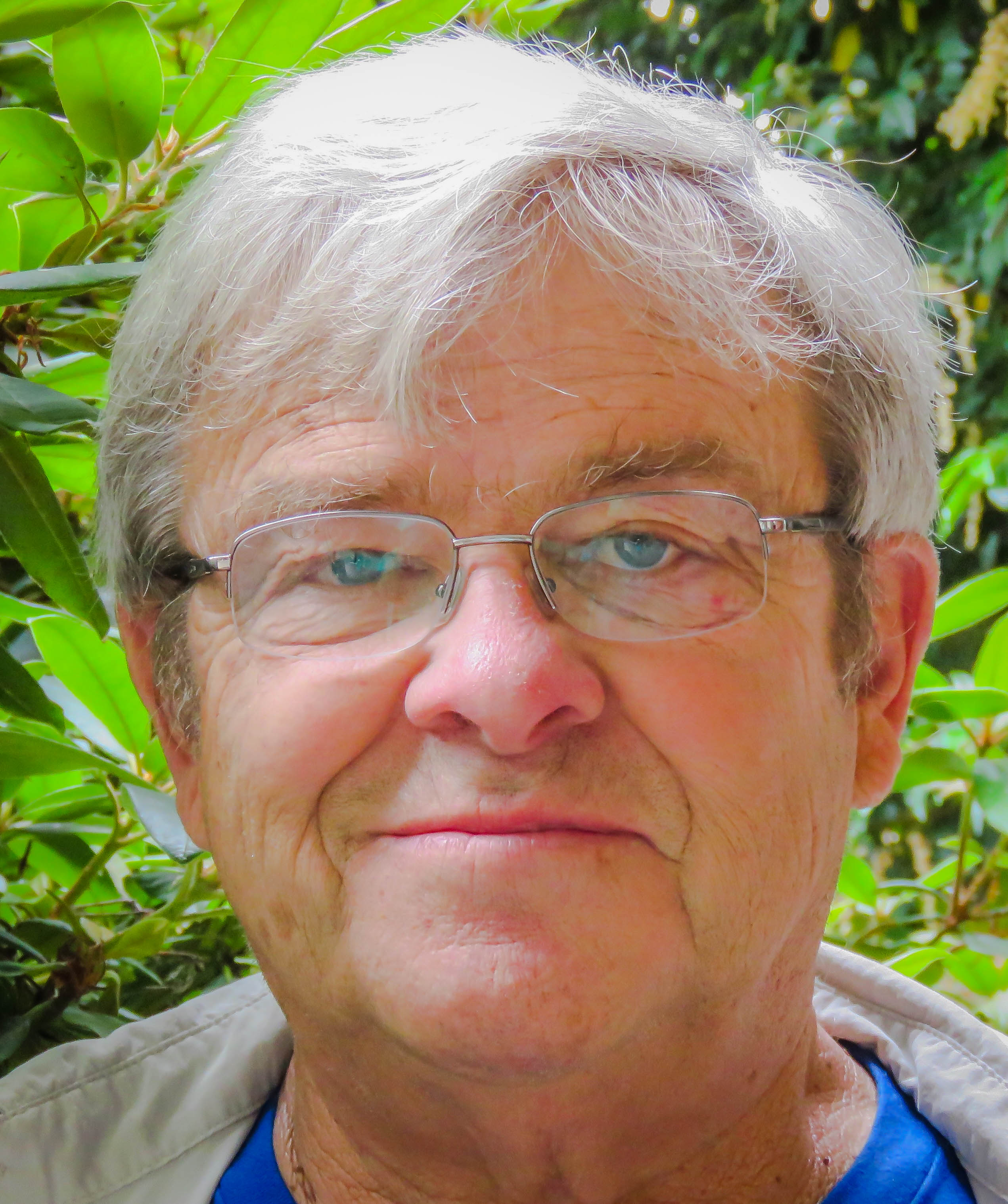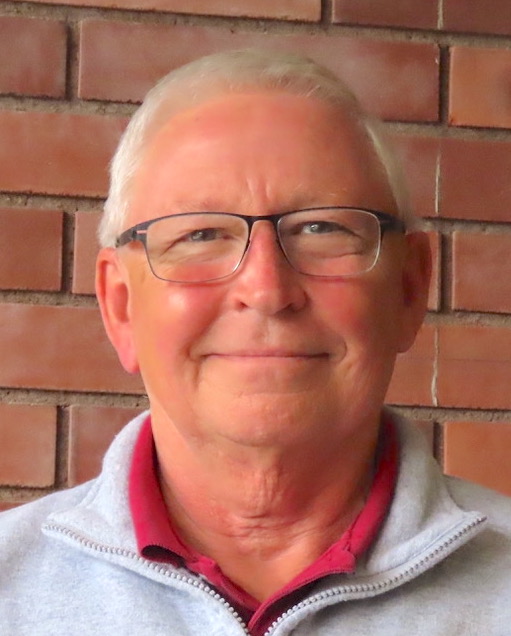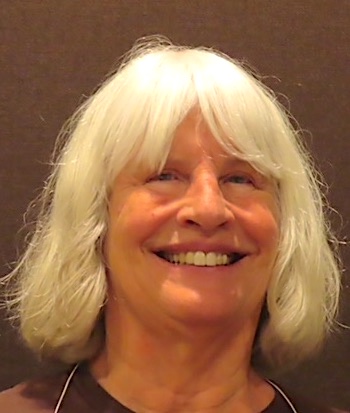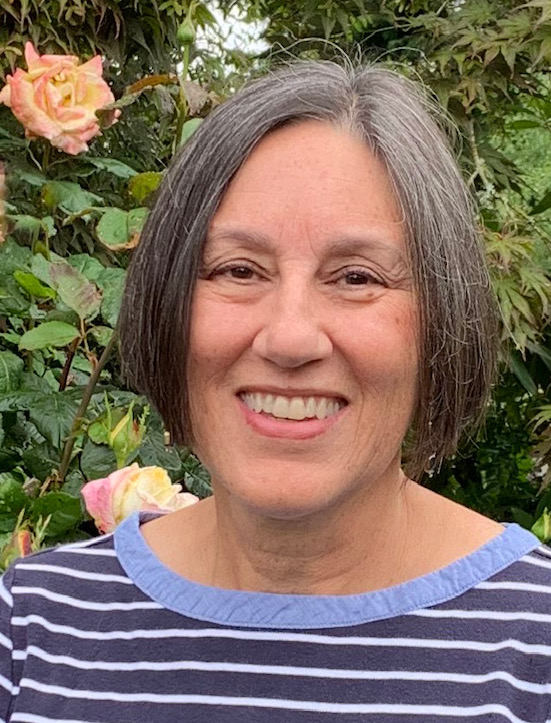Tuesday, April 2
| 10:00 am-12:00 pm | "The Nature of Beauty, The Beauty of Nature," Jeff Hart [Brenda Kidder], Kaneko Auditorium 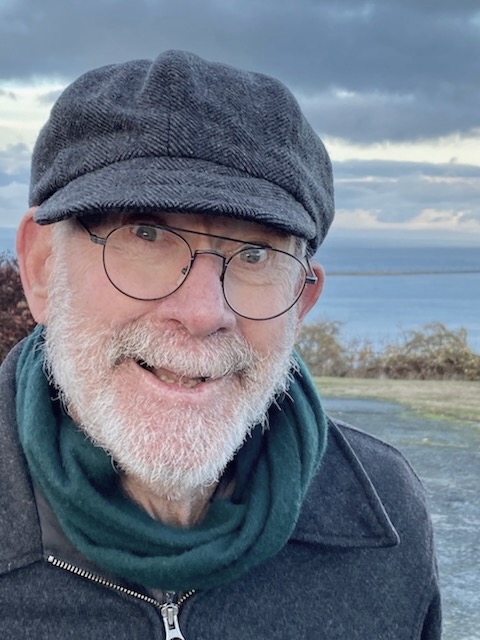 This presentation explores the human perception of nature’s beauty and the concept of beauty from a scientific perspective. With the western US as a backdrop, this image-rich offering will cover various concepts of beauty, such as awe and picturesque. Findings from evolutionary biology, psychology, anthropology, and neurobiology will add to the understanding of the cultural and philosophical relationships between beauty and art.
This presentation explores the human perception of nature’s beauty and the concept of beauty from a scientific perspective. With the western US as a backdrop, this image-rich offering will cover various concepts of beauty, such as awe and picturesque. Findings from evolutionary biology, psychology, anthropology, and neurobiology will add to the understanding of the cultural and philosophical relationships between beauty and art. Jeff Hart, a California native, has studied and photographed nature throughout North America, South America, and Europe. His explorations have taken him backpacking in western mountains, creeping through wetlands of lush valleys, careening along windy coastal roads, photographing sunflowers, sunsets, and wildlife, and romping through rustic pastoral vistas. His curiosity finds him sifting among intellectual gems of philosophical thought, natural history, human relationship with the environment, and human nature. Jeff’s formal education includes BA (environmental biology) and MA (ethnobotany) degrees from the University of Montana and a Ph.D. in evolutionary biology from Harvard University. His extended education comes from his marvel of daily living, reading, and companionship with nature and people |
| 1:00 pm-3:00 pm | CANCELED
Enjoy the nice weather! We will be meeting Thursday afternoon. |
Thursday, April 4
| 10:00 am-11:00 am | "An Opportunity in a Million," Sheila Case [Kay Gerard], Kaneko Auditorium 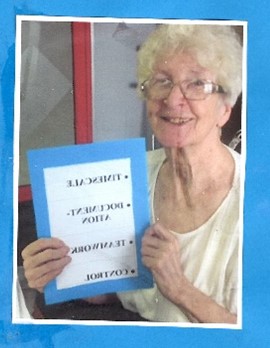 Introductions and Setting of Background; Botswana as a new nation; how teaching experience, combined with a hobby little known in Botswana, led to a unique opportunity to serve in the nation’s development. Illustrations are taken mainly from Botswana stamps.
Introductions and Setting of Background; Botswana as a new nation; how teaching experience, combined with a hobby little known in Botswana, led to a unique opportunity to serve in the nation’s development. Illustrations are taken mainly from Botswana stamps. SMC was born in Essex, England, 1938. Earliest years there before World War II. Education, London University degree in Physics and Chemistry, later, also Teaching Certification. Work experience: after 4 years teaching in Essex, relocated to Malawi for science teaching development under British Government programme of Technical Aid to Developing Countries. Then, similar postings in Zambia and Botswana, which was at that time one of the poorest nations in the world. 15 Years at Maru a Pula School, science and curriculum development. Personal: In Malawi, met and married (1967, between Malawi and Zambia contracts) Peace Corps Volunteer John Harold Case (California and Oregon). Two children born in Zambia and raised in Botswana. Andrew (1969) studied at Reed College, Portland then in New Mexico and Maryland, and is a research physicist. Jenny (1973) did not complete college, for circumstances relating to her husband’s family, and, on her husband’s death, supported herself in Botswana by opening Kalahari Quilts, the only quilting store in Botswana. Retirement: retired 1999 remained in Botswana to 2016 then relocated to Salem. |
| 11:00 am-12:00 pm | "Let’s start your Advance Care Planning: Time to get your Ducks in a row!," Eriko Onishi, Winnie Pitman [Dave MacMillan], Kaneko Auditorium
Eriko Onishi will discuss Advance Care Planning. She will describe how to choose your Health Care Representative(s) and the functions of the Oregon Advance Directive. Eriko Onishi, MD, MCR, PhD is an Assistant Professor at the Oregon Health & Science University Department of Family Medicine and has been practicing FM at OHSU in Portland and Palliative Care at Salem Hospital in Salem, OR. She is also the Medical Director for both Prestige Care and Rehabilitation of Reedwood and Adventist Home Hospice in Portland, OR. |
| 1:00 pm-3:00 pm | "Springtime Musings," Trio Northwest: Laura Loge, Debra Huddleston, Joan Paddock [Solveig Holmquist], *** Kaneko Commons *** NOTE VENUE 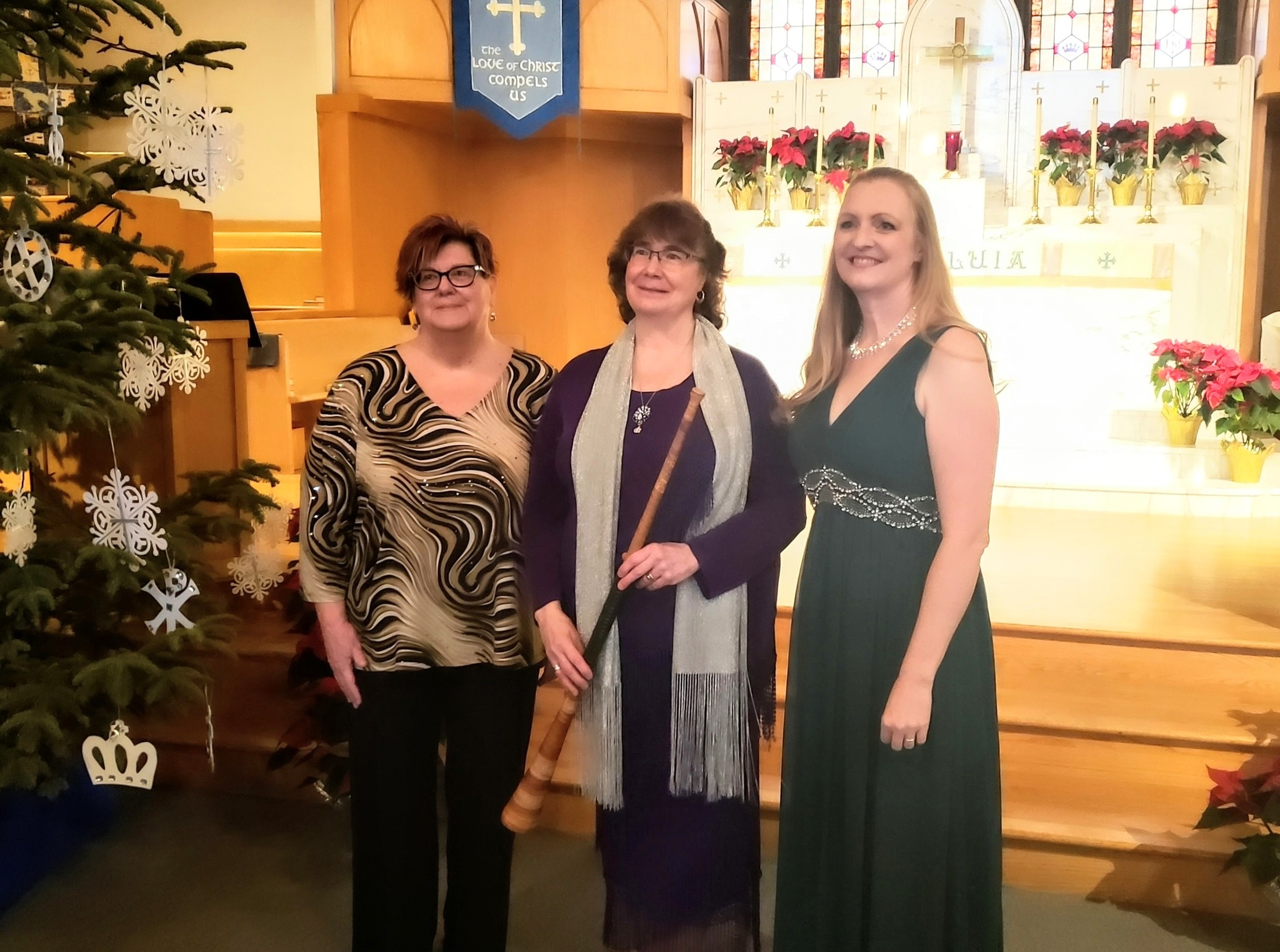 This session, besides being a recital, will include in depth information on composers, texts, performance practices, and how to interpret it all into making the music come alive and touch the soul.
This session, besides being a recital, will include in depth information on composers, texts, performance practices, and how to interpret it all into making the music come alive and touch the soul. Entitled "Springtime Musings", we will also discuss the complicated process of choosing repertoire, a theme, and all that goes into program planning. Joan Haaland Paddock, DM, is Professor of Music, Director of Instrumental Activities, and Chamber Music Coordinator at Linfield University in McMinnville, Oregon. Emerita and Guest Conductor of Linfield University Bands, she now coordinates chamber music, coaches brass, teaches applied trumpet. Soprano Laura Loge has been hailed for her “luminous stage presence” an, , d “characterful and versatile voice.” Opera roles include Violetta, Musetta, Micaëla, Mother (Hansel & Gretel), Ännchen, Lisa (La Sonnambula), La Fée, Lucy (The Telephone), Rosalinda, and Suor Genovieffa, among others. Laura specializes in Nordic art song and chamber music, having performed across the United States and in Norway, including in Edvard Grieg’s villa. She has produced two albums of Nordic song. Debra Huddleston studied organ and piano at the Mozarteum in Salzburg, Austria, finishing her degree in organ at the Hartt School of Music in Harford, CT. She later returned to acquire a Masters degree in piano accompanying. Debra has accompanied choirs on European tours, performances in the White House, and in choir festivals. |
Tuesday, April 9
| 10:00 am-12:00 pm | "A Wide Variety of Musical Interests," Don Gallagher, Brian Sund, Mark Blackburn, Vicki McLean, Brenda Kidder [Solveig Holmquist], Kaneko Auditorium
Don Gallagther - Rodriquez |
| 1:00 pm-2:00 pm | "Soldier On!: The Militarization of the United States," Sam Cantos. Hanni Scholar [Joan Robinson], Kaneko Auditorium 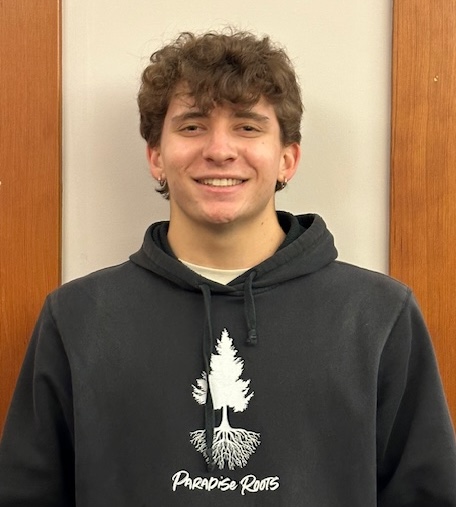 Is the United States a militarized society? What does militarization mean and how does it differ from militarism? This paper views the military as a constant and civil society as the variable and observes how the military, with its set of ideas and values that transcend the people who compose it, is able to infiltrate civil society when it arguably should remain separated in accordance with democratic theory. Is the United States a militarized society? What does militarization mean and how does it differ from militarism? This paper views the military as a constant and civil society as the variable and observes how the military, with its set of ideas and values that transcend the people who compose it, is able to infiltrate civil society when it arguably should remain separated in accordance with democratic theory.
This paper consists of three parts: the first a detailed definition of militarism and militarization based on prior scholarship, the second a timeline that tracks the increasing cultural occupation of civil society by militarization starting after WWII and ending in the present, and the third a synthesis of the ideas discussed throughout the essay in the form of a perspective on how Americans understand their relation to war and the military today. After college, I'll take two years off of school before going to grad school to obtain my MLIS in order to become an archivist. I plan on spending those two years working in Salem, OR, saving up money working during the day, reading and learning languages at night, skiing on the weekends during the winter months. My goals are generally to develop my mind by reading, travelling, and language learning. I'd like to ultimately be thought of as a source of wisdom and knowledge to my friends, family, and community. I also want to have a garden. |
| 2:00 pm-3:00 pm | "Planet to Patient: Environmental Health Hazards and the Changing Role of the Local Free Clinic," Maxwell Fontaine, Hanni Scholar [Tracy Ragland], Kaneko Auditorium 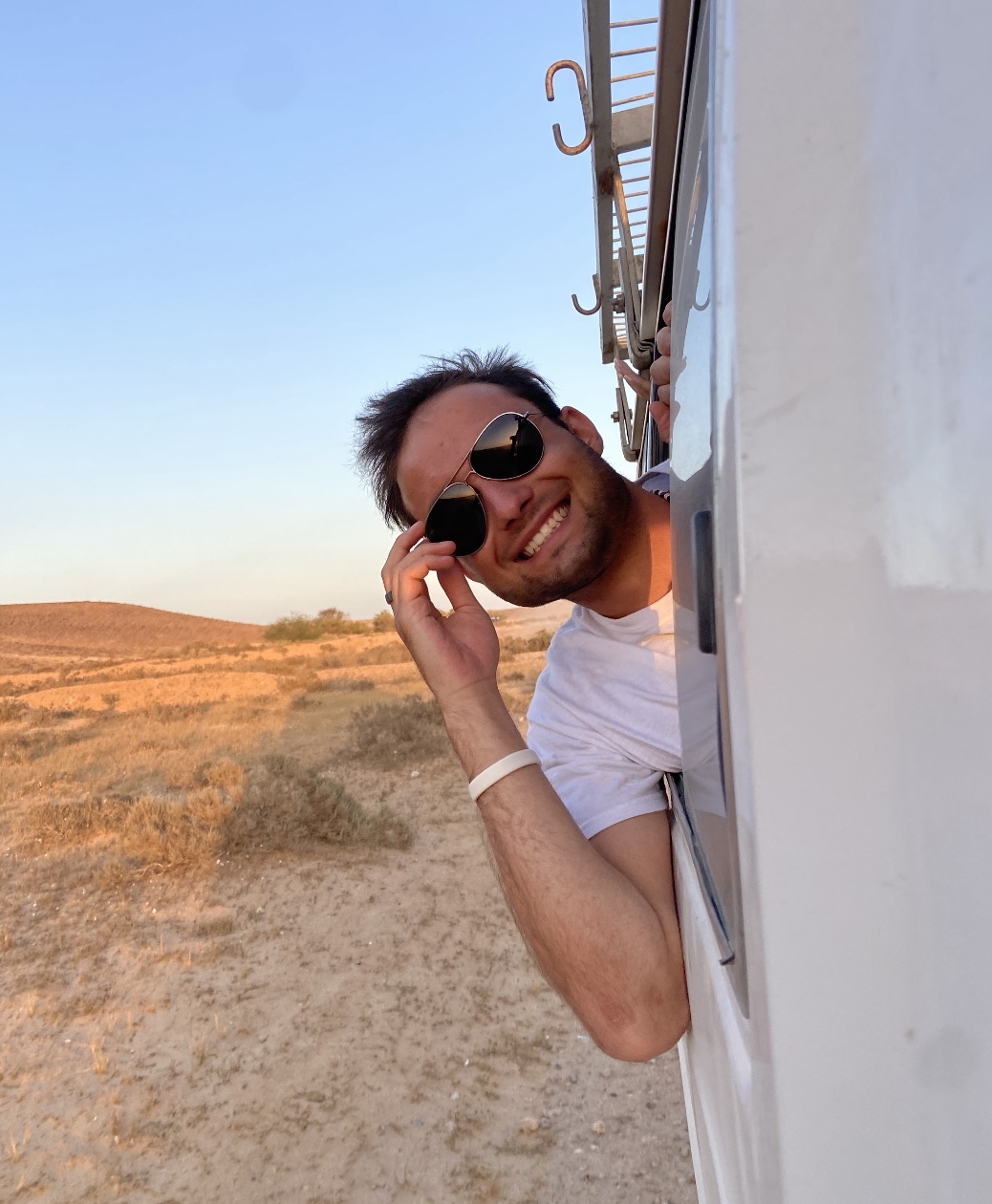 Climate change (CC) produces Environmental Hazards & Threats (EHHT) to population health, yet who is most vulnerable to these risks and how can healthcare best address their distinctive needs? In many communities, local free clinics provide vital health services to those lacking adequate access to healthcare. Climate change (CC) produces Environmental Hazards & Threats (EHHT) to population health, yet who is most vulnerable to these risks and how can healthcare best address their distinctive needs? In many communities, local free clinics provide vital health services to those lacking adequate access to healthcare.
Salem Free Clinic is committed to providing healthcare to the uninsured population in Marion and surrounding counties. In this presentation, I draw upon my internship at the Salem Free Clinic, and a review of best practices to be implemented through emergency preparedness and patient/clinician awareness. Upon graduating from Willamette University, I plan on pursuing a graduate nursing degree to become a nurse practitioner and help close the gap with inequitable access to healthcare. |
Thursday, April 11
| 10:00 am-12:00 pm | "Oregon olive oil? Olive research at the OSU North Willamette Research and Extension Center.," Neil Bell [Vicki Pedone], Kaneko Auditorium 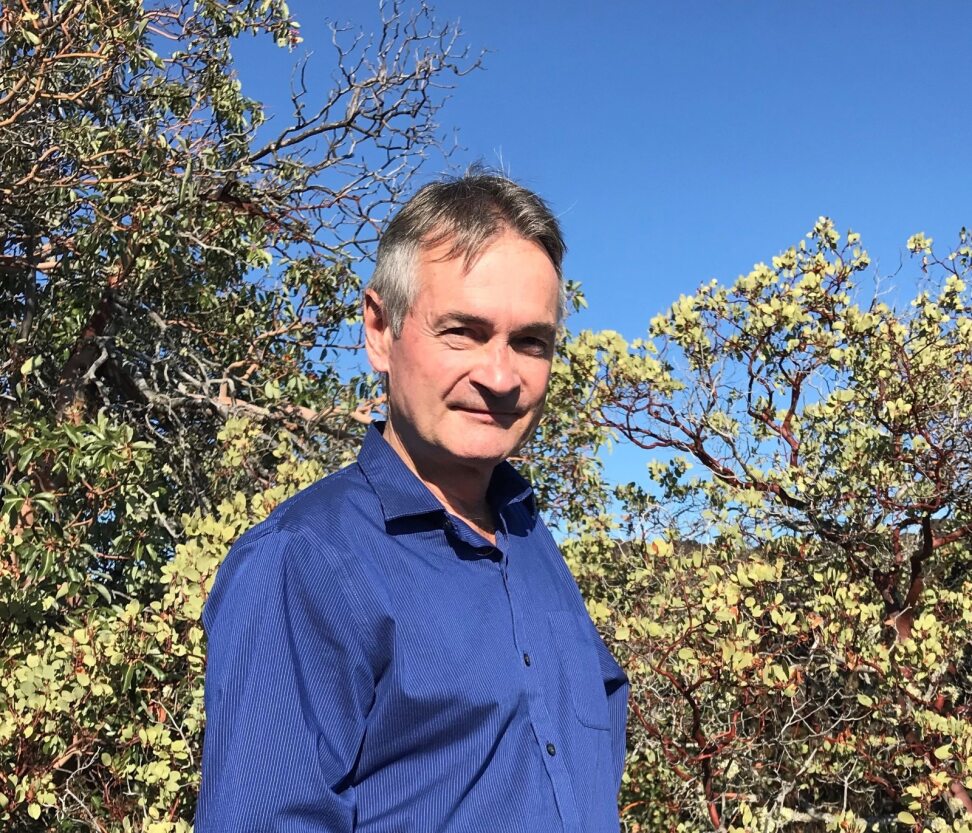 Although western Oregon is not a traditional olive growing region, a few innovative growers successfully grow, harvest and press olives into quality olive oil for local consumption. The major challenge for olive growing in our region is damage from winter cold.
Although western Oregon is not a traditional olive growing region, a few innovative growers successfully grow, harvest and press olives into quality olive oil for local consumption. The major challenge for olive growing in our region is damage from winter cold. To support this nascent industry, OSU Extension began to research olive cold hardiness in 2017. The program will look at olive cultivation efforts in Oregon, in other cool production regions of the world and results so far of this research effort. Neil Bell was the Community Horticulturist for OSU Extension Service in Marion County and Polk County from 2000-2021. He coordinated the Master Gardener programs in both counties, teaching pruning of ornamental plants and plant problem diagnosis among other topics. He also conducts applied research on cold hardiness of drought-tolerant landscape plants, an effort that also includes the olive research program. He has a BS in Plant Science from the University of British Columbia and an MS in Horticulture from Oregon State University. |
| 1:00 pm-2:00 pm | "The Wall in The Mind: A Cultural History of the DDR, and the Post-Reunification Divide Between East and West," Louis Babik, Hanni Scholar [Solveig Holmquist], Kaneko Auditorium
From the beginning of the DDR to its end, East Germans became ever-more distinct from their West German counterparts, developing a unique and rich culture despite living under a repressive regime. The way of life for East Germans was in many ways written off during the reunification process, leaving many former citizens of the DDR unwilling to identify themselves with what was in essence a West German take-over of their country. Through an analysis of what everyday life was like in the DDR, how the reunification process failed to fully unify the country, and how Germans today identify themselves and feel about their country, this project will reevaluate the popular depiction of the DDR and how it affects modern-day Germany and German identity. The presentation acknowledge the downsides of life in East Germany, but also highlights the merits of every-day life there, and argues that these merits should be a part of and have influence on modern German identity. I have always had a passion for history; even in elementary school, I found that projects which required some sort of research and analysis of past events were the most fun for me to complete. In particular, I remember reading a monograph by Howard Zinn about US history written through the lens of everyday people, rather than the presidents and leaders focused on in textbooks. This sparked my interest in social history, the lived experiences of the past, and how we might be able to use knowledge of these concepts to better understand the present day. This is why my senior thesis focuses on the history of everyday life in East Germany, and how it relates to the modern situation in Germany. Additionally, I am very passionate about music. I play multiple instruments, including drum set (along with other percussion instruments), piano, guitar, and bass guitar. On Willamette's campus, I am involved in numerous musical groups, playing a variety of genres and styles. This ranges from big band jazz, to experimental music, to hard rock/indie. I have also been a resident advisor on campus for three years now, and I have found that the position helped me to grow both in my professional life, but also in my personal life.In terms of my future plans and life goals, I hope to continue studying history after graduating from Willamette, with the goal of acquiring my masters in the field. I also have a connection to Germany, and may choose to work in government over there at some point. My goal in life is to enrich the lives of others, in any way that I can; ultimately, I wish to leave this world having made it a better place for those who come after me, and I believe that through learning, teaching, and discussing history, I will be able to achieve this goal. Major(s): History major, German minor. |
| 2:00 pm-3:00 pm | "Using Harmonic Force Spectroscopy to Determine the Force Dependence of Myosin II," John Campi, Hanni Scholar [Vicki Pedone], Kaneko Auditorium 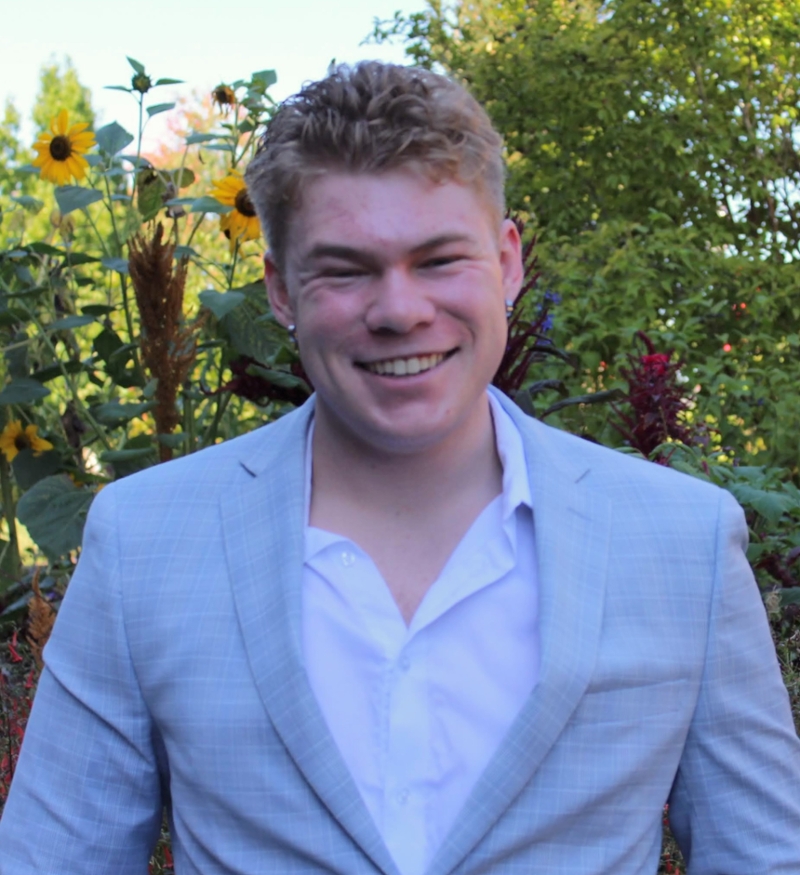 Our research focuses on myosin II, a cytoskeletal motor protein capable of generating motion inside cells. Because these motors function in an incredibly crowded and dynamic cellular environment, they experience a variety of forces in various directions.
Our research focuses on myosin II, a cytoskeletal motor protein capable of generating motion inside cells. Because these motors function in an incredibly crowded and dynamic cellular environment, they experience a variety of forces in various directions. This project aims to understand how such forces can regulate the motor’s activity. Using an optical trap, a tightly focused laser that can apply forces to microscopic objects, we measured how myosin’s stepping varies in response to forces applied in different directions. Preliminary single-molecule data suggest that myosin’s motility is dependent on the magnitude and direction of the forces it experiences. Next year, I will be attending the University of Texas at Austin to pursue a PhD in Acoustics with the mechanical engineering department. I hope that after I obtain my degree, I'll continue doing research, now with the ability to explore other fields as well. Major(s): Physics |
Tuesday, April 16
| 10:00 am-12:00 pm | "Computational thinking for life-long learners using unplugged and plugged approaches," Fred Agbo [Vicki Pedone], Kaneko Auditorium 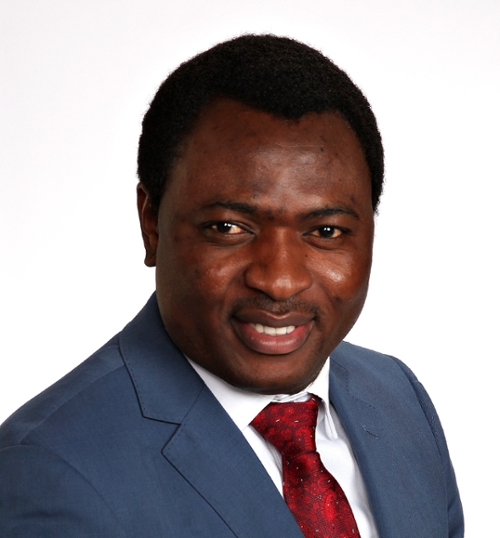 Computational thinking (CT) refers to the thought processes involved in solving problems. CT concepts have been widely used in several contexts to foster problem-solving skills necessary not just for computing alone but also relevant in almost all areas of life endeavor. In this presentation, I will provide background to what CT is and what it is not and lay the foundation for why we should pursue CT for life long learners. In addition, this session will allow us to explore examples of CT activities to demonstrate their relevance to the context.
Computational thinking (CT) refers to the thought processes involved in solving problems. CT concepts have been widely used in several contexts to foster problem-solving skills necessary not just for computing alone but also relevant in almost all areas of life endeavor. In this presentation, I will provide background to what CT is and what it is not and lay the foundation for why we should pursue CT for life long learners. In addition, this session will allow us to explore examples of CT activities to demonstrate their relevance to the context.Assistant Professor of Computer Science Fred Agbo joined the School of Computing and Information Science, Willamette University in 2023 as an Assistant Professor of Computer Science. Before joining Willamette University, he worked as a University Lecturer at the School of Computing, University of Eastern Finland (UEF) in Joensuu, Finland. Fred completed his PhD degree from the same University of Eastern Finland in 2022, specializing in computing education and educational technology. Fred currently teaches computer science and data science courses, supervises undergraduate and graduate students, and lives in Salem with his family. Fred was born to a family of 5 among whom he is the last. He started his education in Nigeria and went on to obtain his bachelor's and master’s degrees in computer science from the University of Jos and the University of Ilorin, respectively. |
| 1:00 pm-2:00 pm | "Chinese, Americans, and Chinese Americans: Those That Must Stay and Those That Must Go," Emily Hanlin, Hanni Scholar [Toni Peterson], Kaneko Auditorium When examining the recent resurgence of sinophobia since COVID-19 began, the historical parallels between now and the Chinese Exclusion Act era become immediately apparent. This study examines the principles of the “perpetual foreigner syndrome” in relation to anti-Asian behavior. It also looks to the history of public opinion on the Chinese community via several readings, including: “The Chinese Must Go: Violence, Exclusion, and the Making of the Alien in America” by Beth Lew-Williams (2018), “The Chinese in America” by Iris Chang (2003), and “The Chinese Must Stay” by Yan Phou Lee (1889). |
| 2:00 pm-3:00 pm | "Long Live America and Democracy; The 'Japanese Question' in Local and State Salem Politics ," Inéz Anais Nieves Suárez, Hanni Scholar [Joyce and Tom Zook], Kaneko Auditorium 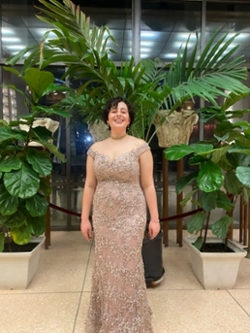 Shock and anger struck Salem the night of December 7, 1941. Misplaced fear of the “enemy” in the aftermath of the attack on Pearl Harbor would infamously be used to justify what is known today as Japanese internment: the systematic policy of targeting, forcibly relocating, and imprisoning Japanese-American people living in the Western United States in concentration camps during World War II. Salem became an important location for internment policy because of its place in Oregon politics, shaping the policies that would ultimately imprison 221 Japanese-Americans living in Marion and Polk Counties at Tule Lake Relocation Center. Many never returned. This presentation focuses on the lives of two key historical actors, Governor Charles Sprague and Reverend Andrew Kuroda, their role in the debate over the Japanese Question, and the impact their decisions as local Salem leaders had on the construction of Japanese internment as a political system and government institution. Shock and anger struck Salem the night of December 7, 1941. Misplaced fear of the “enemy” in the aftermath of the attack on Pearl Harbor would infamously be used to justify what is known today as Japanese internment: the systematic policy of targeting, forcibly relocating, and imprisoning Japanese-American people living in the Western United States in concentration camps during World War II. Salem became an important location for internment policy because of its place in Oregon politics, shaping the policies that would ultimately imprison 221 Japanese-Americans living in Marion and Polk Counties at Tule Lake Relocation Center. Many never returned. This presentation focuses on the lives of two key historical actors, Governor Charles Sprague and Reverend Andrew Kuroda, their role in the debate over the Japanese Question, and the impact their decisions as local Salem leaders had on the construction of Japanese internment as a political system and government institution. What originally drew me to Willamette University was its sustaining principle, "non nobis solum nati sumus." I made the decision to travel across the country to pursue an education here in order to prepare myself for service to those seeking justice against today’s global inequities. My dedication to this personal yet radical mission inspired me to declare a dual major in Politics, Policy, Law and Ethics (PPLE) and History, with a concentration in the study of authoritarian regimes and political movements. Having been raised in the Deep South surrounded by the imagery of the Confederacy’s legacy, an experience I discussed in a 2021 edition of The Collegian, I noticed the startling parallels between the American tradition of racial exception and its extreme logical conclusions in the emergent fascist movements of the 20th century. My academic career has been an attempt at reconciling these political and historical tensions; this realization and its broader implications for the longevity of democratic traditions in the US are explored in the work I submit here. Indeed, there are personal stakes as well — as the child of refugees and a first generation American, I am actively invested in these questions and informed by a personal oral history of political resistance against extremism. Major(s):Major: PPLE and Hiistory majors, English minor |
Thursday, April 18
| 10:00 am-12:00 pm | "Rethinking the Classics: An Orientation to Current Controversies," Dr. Robert Chenault [Ann Boss], Kaneko Auditorium 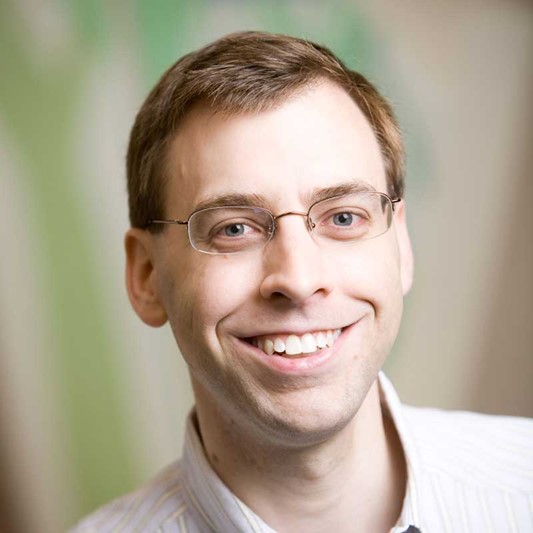 Ancient Greek and Roman history, culture, and literature have long provided powerful ideas and images that have been used in later periods for both good and ill. What used to be taken for granted as the largely positive legacy and influence of the Greeks and Romans as the originators of foundational Western ideas has lately come in for severe criticism, including by some of those who know the Greeks and Romans best: professors of Classics who now take the lead in exposing the many faults of the people they study. The only groups who are still unequivocally enthusiastic about the Greeks and Romans seem to be advocates for extreme nationalist, fascist, and far-right agendas. In this environment, can the Greeks and Romans be redeemed? Should they be? How can we come to terms with these ancient legacies that we still live with today? This lecture will present an orientation to certain of these controversies and also suggest a different way of thinking about the Greeks and Romans: as a kind of "laboratory" in which our current political problems can be studied at arm's length, in the hope that examining them in a different context might yield insights into some of our own predicaments.
Ancient Greek and Roman history, culture, and literature have long provided powerful ideas and images that have been used in later periods for both good and ill. What used to be taken for granted as the largely positive legacy and influence of the Greeks and Romans as the originators of foundational Western ideas has lately come in for severe criticism, including by some of those who know the Greeks and Romans best: professors of Classics who now take the lead in exposing the many faults of the people they study. The only groups who are still unequivocally enthusiastic about the Greeks and Romans seem to be advocates for extreme nationalist, fascist, and far-right agendas. In this environment, can the Greeks and Romans be redeemed? Should they be? How can we come to terms with these ancient legacies that we still live with today? This lecture will present an orientation to certain of these controversies and also suggest a different way of thinking about the Greeks and Romans: as a kind of "laboratory" in which our current political problems can be studied at arm's length, in the hope that examining them in a different context might yield insights into some of our own predicaments.Robert Chenault is Professor of History and Classics at Willamette University. He teaches courses in ancient Greek and Roman history and Greek and Latin language. His research is focused on the history of the later Roman Empire, with a particular focus on the city of Rome and its senators. |
Tuesday, April 23
| 10:00 am-11:00 am | "Great Decisions: Science Across Borders," Mark Blackburn [Anita Owen, Mark Kendall], Kaneko Auditorium 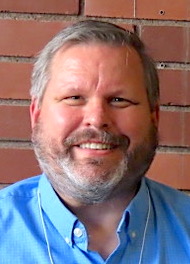 Scientific advances benefit from collaboration between researchers, but what happens when material, such as Artificial Intelligence (AI) is controversial and important to a nation’s national security? Is there a middle ground between sharing information and denying access? How can we regulate cooperation?
Scientific advances benefit from collaboration between researchers, but what happens when material, such as Artificial Intelligence (AI) is controversial and important to a nation’s national security? Is there a middle ground between sharing information and denying access? How can we regulate cooperation?Mark Blackburn has been an ICL member since 2022. |
| 11:00 am-12:00 pm | "Passenger Flights in Salem: How we got here, why, and what the future holds," Brent DeHart [Vicki Pedone], Kaneko Auditorium 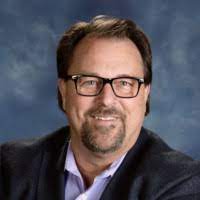 Brent will clear up some community misconceptions regarding the airport, including why we lost Delta service in 2008. He will go over who Fly Salem is, and how it recruited passenger service, and the headwinds along the over 5-year effort. Public policy considerations involving climate change, noise, and using tax dollars will be covered, followed by what service we have now, how it is doing, and what we expect to happen in the future.
Brent will clear up some community misconceptions regarding the airport, including why we lost Delta service in 2008. He will go over who Fly Salem is, and how it recruited passenger service, and the headwinds along the over 5-year effort. Public policy considerations involving climate change, noise, and using tax dollars will be covered, followed by what service we have now, how it is doing, and what we expect to happen in the future. Brent DeHart has led the Fly Salem Committee with the goal of attracting commercial air service to Salem's airport (SLE) for the past 6 years. His community leadership roles have included a Salem City Councilor, President of the Salem Area Chamber of Commerce, and he currently serves on SEDCOR's board of directors. He owns Salem Aviation, the fuel concessionaire at Salem Airport, which also now does all ground services for Avelo Airline's new service. He has been in small business ownership in Salem for over 30 years. He lives in Independence with his wife of 33 years and they have two adult sons. |
| 1:00 pm-3:00 pm | "Why You Need to Know about the Counter Cult World," Lisa Kendall [Vicki Pedone], Kaneko Auditorium 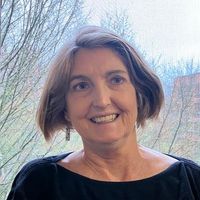 1) Cults are a bigger problem than you think.
1) Cults are a bigger problem than you think.Since most cults work to stay off the radar, their prevalence and the extent of abuse and exploitation is not widely known. In addition, many groups that appear benign, such as the Amish, have well documented cases of covering up the worst forms of crime across the country. 2) Cultic harm impacts your personal finances more than you realize. We will touch on the connection to cult involvement and the safety net provided for people in and from high-demand as well as the cost of crime, unemployment and underemployment, patriarchy, and child abuse. 3) The counter cult community is much bigger and better organized than you know. There are thousands of activists and advocates in the counter cult world providing legal, administrative, counseling, teaching, healing, medical, and organizing support. 4) You can all do something to help the most vulnerable people leaving cults without investing time and money. Lisa is the director of Counter Cult Coalition. She has a Masters in Public Administration with a focus on public-private partnerships. She has extensive experience in business and nonprofit management. Her upbringing in the Move of God, the bible cult she grew up in from ages 9-19 and her education and expertise brought her to activism in the counter cult world. She is currently working on the first ever public budgeting for children leaving cults in the United States, projects to provide guidelines and accountability for leaders in the cult awareness community, and the publication of an international calendar of some of the notable women in the counter cult arena. She lives in Portland with three cats and a freezer full of baked goods. |
Thursday, April 25
| 10:00 am-11:00 am | "Environmental Health Hazards and Threats: community engaged research," Nicole Iroz-Elardo, Melinda Butterworth [Dave MacMillan], Kaneko Auditorium 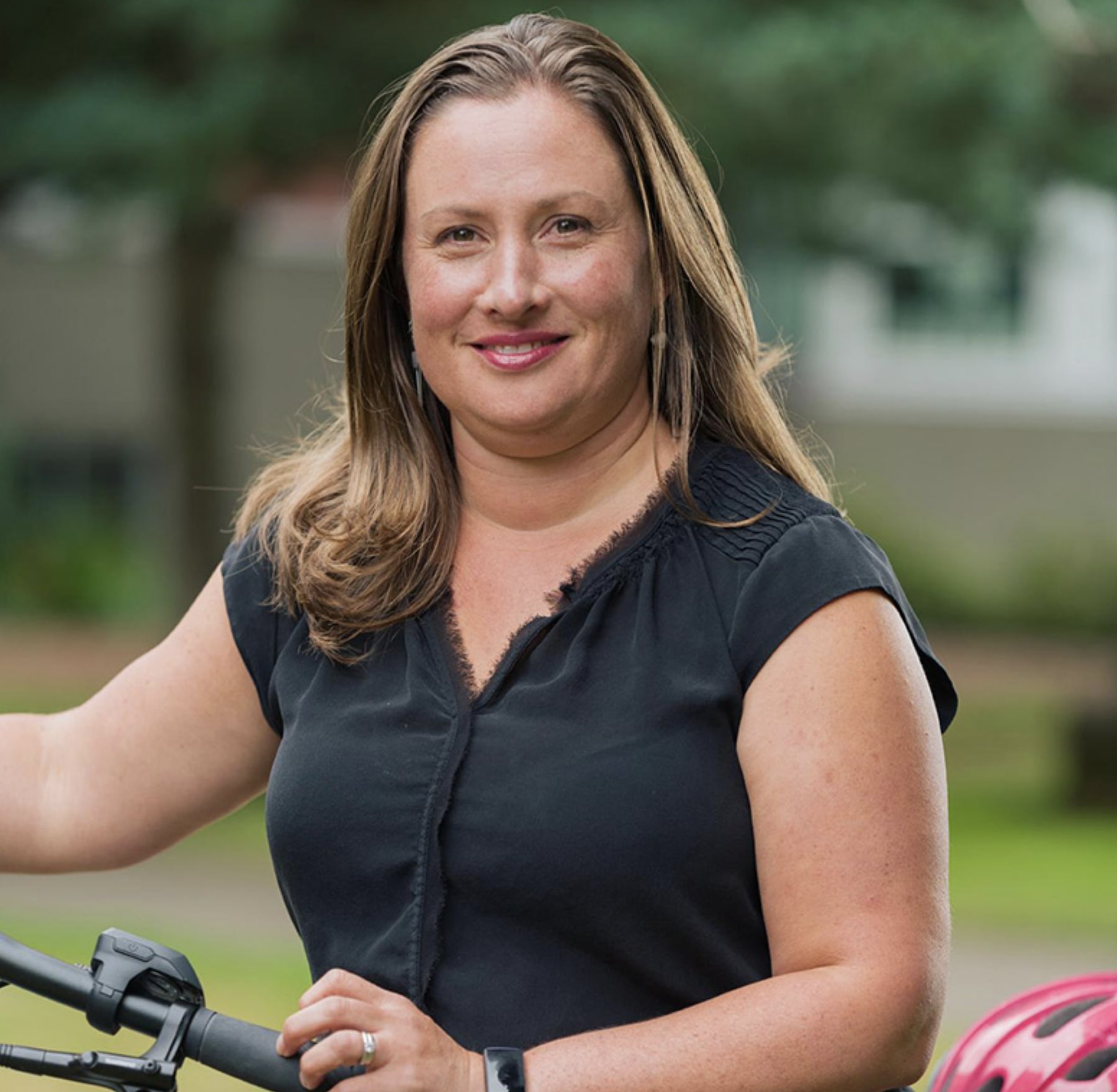 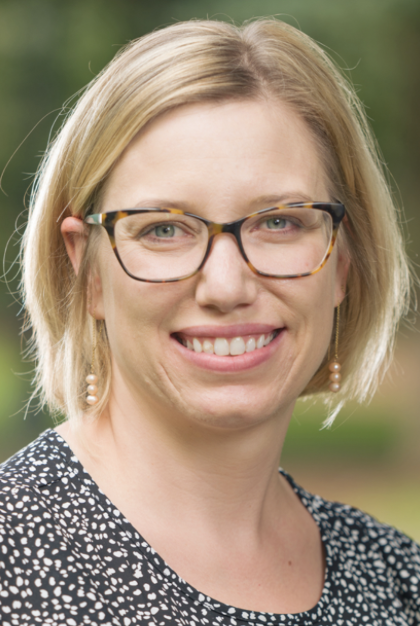 This talk outlines a collaboration between Willamette University and the health departments of Marion and Polk Counties to understand community vulnerability, resiliency, and capacity to respond to environmental health hazards and threats (EHHTs). Local EHHTs of concern include wildfires and wildfire smoke, water quantity and quality, weather-related power shutoffs, severe storms, drought, and vector-borne disease.
This talk outlines a collaboration between Willamette University and the health departments of Marion and Polk Counties to understand community vulnerability, resiliency, and capacity to respond to environmental health hazards and threats (EHHTs). Local EHHTs of concern include wildfires and wildfire smoke, water quantity and quality, weather-related power shutoffs, severe storms, drought, and vector-borne disease. Through surveys, interviews, focus groups with residents and community partners, along with analyses of multiple types of documents (news and social media, policies, plans, etc), we aim to provide local health authorities with information that supports their efforts to increase communication and resiliency across Marion and Polk Counties. This talk will give an overview of the project scope, showcase the contributions of Willamette undergraduates through community engaged learning, and highlight a few preliminary findings. Iroz-Elardo bio: Nicole Iroz Elardo is an Assistant Professor in the Public Health, Ethics, Advocacy, and Leadership (PHEAL) program. Cross-trained in urban planning and public health, her research focuses on how to plan healthier and more equitable communities by leveraging the social and environmental determinants of health. Melinda Butterworth is an Associate Professor in Environmental Science. Trained as health/medical geographer, her research focuses on understanding the links between climate, ecology, and socio-political processes shaping disease. |
| 11:00 am-12:00 pm | "Great Decisions: Understanding Indonesia," Mark Kendall [Anita Owen, Mark Kendall], Kaneko Auditorium 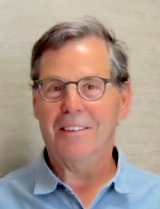 Indonesia is the world's fourth most populous nation and is predominantly Muslim. Achieving independence from the Dutch in 1945, this nation founded as a "consultative democracy' has often had tumultuous shifts in political power and flirted with military junta control. With the largest Navy in the South Indo-China Sea they have become a significant influence in US and Chinese relations. Surveys show that American's know little more than we get nickel for batteries and coffee from Sumatra.
Indonesia is the world's fourth most populous nation and is predominantly Muslim. Achieving independence from the Dutch in 1945, this nation founded as a "consultative democracy' has often had tumultuous shifts in political power and flirted with military junta control. With the largest Navy in the South Indo-China Sea they have become a significant influence in US and Chinese relations. Surveys show that American's know little more than we get nickel for batteries and coffee from Sumatra. Great Decisions explores the geopolitical role Indonisia plays in South-East Asia and the internal and external challenges they face in their growing role in the international sphere. Presenter Mark Kendall has been an ICL member since fall 2023. |
Tuesday, April 30
| 10:00 am-12:00 pm | "The Science of Aging From a Physical Therapist Perspective," Dr. Sean Degn [Lisa Liermo], Kaneko Auditorium 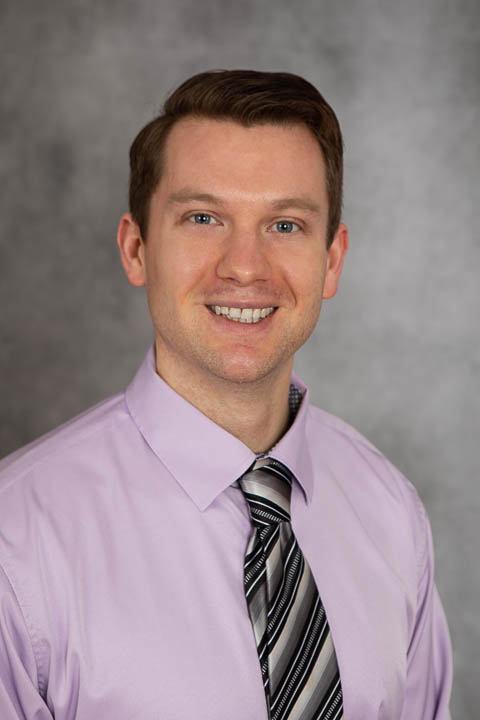 Balance, mobility, and strength are the three components that allow for successful aging and independence from a structural standpoint. In today's talk, we will discuss the science behind why these components are important, how they function, and how we can improve them. These components are intertwined and can become complex in certain situations. I will present information on anatomy, physiology, and current concepts.
Balance, mobility, and strength are the three components that allow for successful aging and independence from a structural standpoint. In today's talk, we will discuss the science behind why these components are important, how they function, and how we can improve them. These components are intertwined and can become complex in certain situations. I will present information on anatomy, physiology, and current concepts.My name is Dr. Sean Degn, though no one calls me a doctor. I have my doctorate in Physical Therapy from Eastern Washington University. I have done research in interset recovery strategies (how to recover in the middle of a workout) as well as alternative movement strategies status post median sternotomy (how to move after open heart surgery). I have a solid foundational understanding and skill set for sports physical therapy, but my passion in my career is successful aging. I hope to teach you how your body works and that age is just a number. |
| 1:00 pm-3:00 pm | "The ICL Spring Book Read: "Trust" by Hernan Diaz - Fiction," Rebecca Miller Moe [Rebecca Miller Moe], Kaneko Auditorium 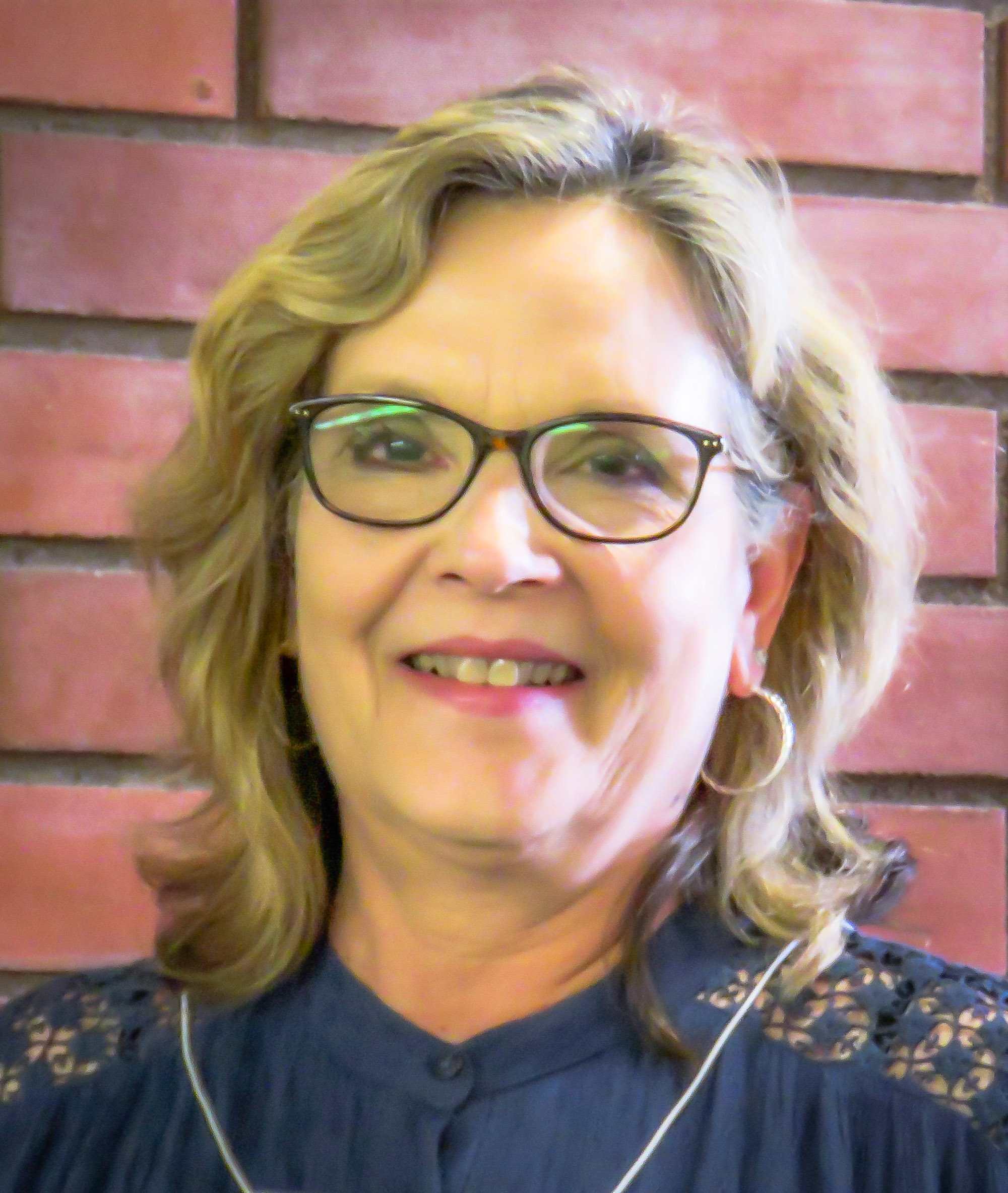 Even through the roar and effervescence of the 1920s, everyone in New York has heard of Benjamin and Helen Rask. He is a legendary Wall Street tycoon; she is the daughter of eccentric aristocrats. Together, they have risen to the very top of a world of seemingly endless wealth—all as a decade of excess and speculation draws
Even through the roar and effervescence of the 1920s, everyone in New York has heard of Benjamin and Helen Rask. He is a legendary Wall Street tycoon; she is the daughter of eccentric aristocrats. Together, they have risen to the very top of a world of seemingly endless wealth—all as a decade of excess and speculation drawsto an end. But at what cost have they acquired their immense fortune? This is the mystery at the center of Bonds, a successful 1937 novel that all of New York seems to have read. Yet there are other versions of this tale of privilege and deceit. Hernan Diaz’s TRUST elegantly puts these competing narratives into conversation with one another—and in tension with the perspective of one woman bent on disentangling fact from fiction. The result is a novel that spans over a century and becomes more exhilarating with each new revelation. At once an immersive story and a brilliant literary puzzle, TRUST engages the reader in a quest for the truth while confronting the deceptions that often live at the heart of personal relationships, the reality-warping force of capital, and the ease with which power can manipulate facts. Rebecca Miller-Moe has been an ICL member since 2017 |


